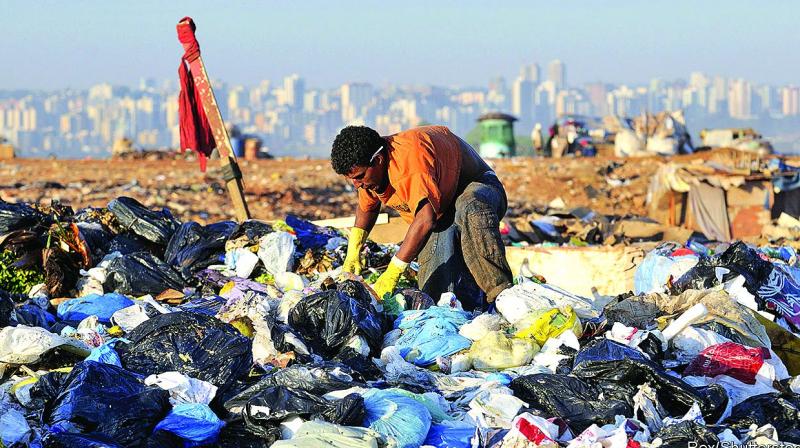No solution yet on multi-layered FMCG packaging waste

Chennai: While the government is planning to ban a few single use plastic products, multi-layered plastics used for packing FMCG products will still remain.
After the industry missed the deadline to phase out multi-layered packaging material in 2018, it finds recycling as an alternative. But concerted efforts to address this waste management issue are still missing.
In 2016, the government had stipulated that the "manufacture and use of multi-layered plastic, if any, should be phased out in two years' time". The deadline ended last year and the industry was not been able to find alternate materials for packing FMCG products. Multi-layered plastic is commonly used in packaging most of the FMCG products including, snacks, biscuits, candy, tea powder, coffee powder, edible oil etc. This packaging material is used by the industry so as to increase the shelf-life of food products.
"Indian plastic packaging industry has grown around 20 per cent CAGR in last five years and is estimated to achieve $32 billion annual turnover by 2025. Around three-fourth of this market is meant for packaging FMCG and this is a concern for government," said Varun Gupta, Director, Calco Poly Technik.
According to Suresh Narayanan, Chairman and Managing Director of Nestle, FMCG companies have been able to provide products at affordable prices only due to the cheaper packaging products. FMCG prices will go up once some of the costlier alternative materials are used.
"Further, multi-layered packaging is essential for packing food products to keep it fresh for a longer period,' said Vimal Kedia, Managing Director, Manjushree Technopack.
According to him, the industry has started exploring ways to get multi-layered plastics recycled.
"The biggest challenge is collection. This material is very light and hence rag-pickers are not interested in collecting them.
The industry will have to pool in resources to set up an eco-system in which rag-pickers are incentivised to collect these plastics".
Packaging industry has decided to work together and will be presenting a proposal in this regard before the government. Some of the large FMCG companies also have started initiatives to address the plastic waste.
Nestle had run a pilot project early this year in Dehradun and Mussoorie in which 10 empty packets of Maggie noodles could be exchanged for a free Maggie packet. Global FMCG majors Unilever and Nestle want 100 per cent of its packaging to be recyclable and reusable by 2025.

